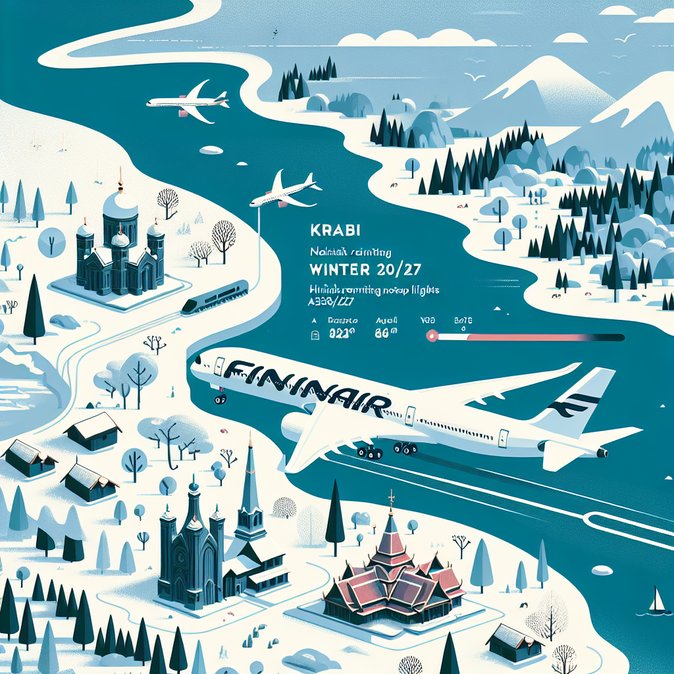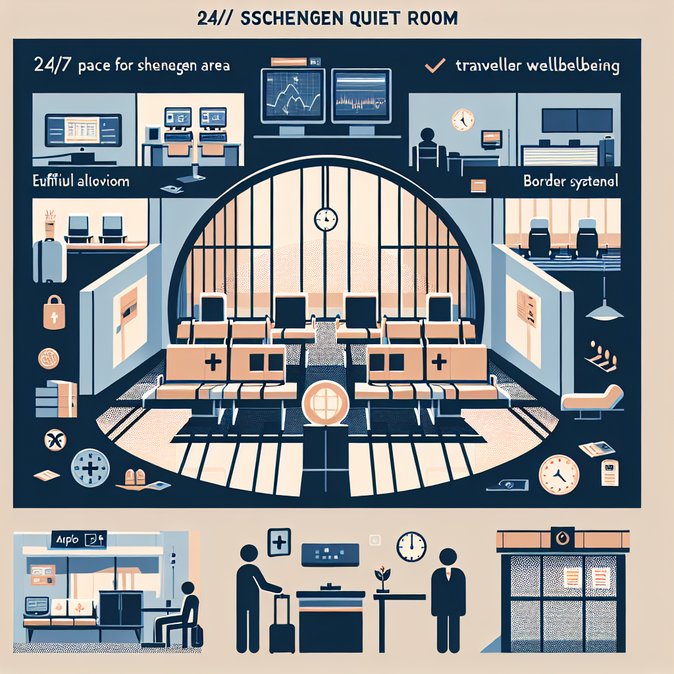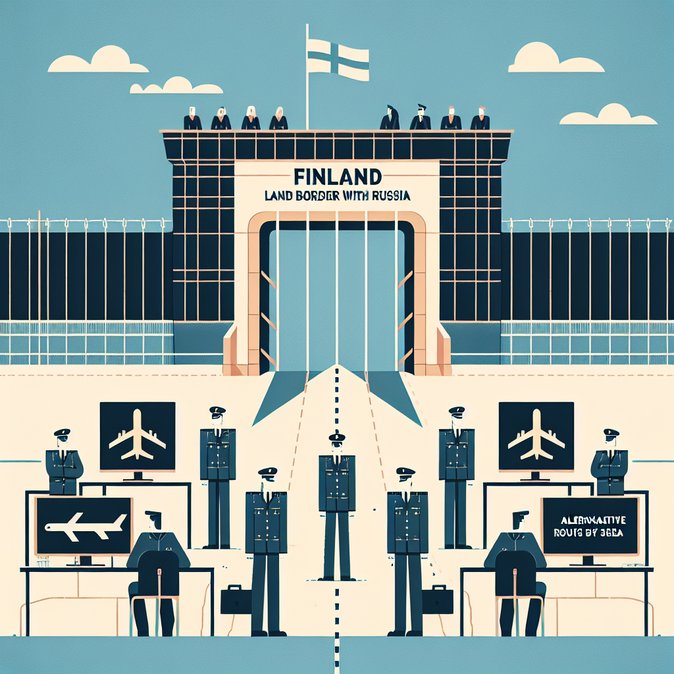
Finnair has confirmed that it will relaunch nonstop seasonal service between Helsinki-Vantaa (HEL) and Krabi (KBV) in southern Thailand from 30 November 2026 through 25 March 2027 after a six-year pause. The twice-weekly flights will be operated with 297-seat Airbus A350-900s departing Helsinki on Monday and Thursday evenings and returning from Krabi on Tuesday and Friday mornings. Flying time is scheduled at 11 hours south-bound and 12 hours 45 minutes north-bound.
Although leisure travellers will make up the bulk of demand, the route has clear global-mobility implications. Many expatriates and project personnel based in Finland use Thailand as a regional leave hub; eliminating the Bangkok transfer cuts total journey time by up to four hours and removes a connection-related duty-of-care risk. Finnair also intends to sell the link as a one-stop product for passengers from North America: evening A350 arrivals from New York, Chicago and Dallas will connect air-side to the overnight Krabi departure, reinforcing Helsinki’s strategy as a ‘snow-free’ transfer gateway even in mid-winter.
![Finnair resurrects Helsinki–Krabi direct flights, giving Finnish business travellers a nonstop winter sun option]()
The announcement follows Finnair’s Capital Markets Day, where management mapped out capacity growth of 15 percent by 2029 with a tilt toward long-haul leisure routes that balance slower-to-recover corporate Asia demand. Helsinki’s geographic position allows the carrier to operate south-west “triangle” rotations that keep aircraft and crews productive during the Nordic winter while feeding Thailand’s high-season tourism economy.
Corporate travel managers should update internal booking tools well in advance: inventory opens on 1 December 2025, and the carrier will initially release only 40 percent of seats for corporate fare classes to test demand. Travel-policy owners may also wish to brief travelling employees on Thailand’s new biometric pre-clearance (TM6) system and on Finland’s upcoming Entry/Exit System (EES) due to go live in October 2025.
Practically, the reinstated service means fewer forced overnights in Bangkok and improved access to Thailand’s Andaman-coast industrial zones at Map Ta Phut and Laem Chabang, which host several Finnish engineering projects. Mobility teams should consider revising per-diem tables: Krabi rates are typically 15–20 percent lower than Phuket’s, presenting savings on extended stays.
Although leisure travellers will make up the bulk of demand, the route has clear global-mobility implications. Many expatriates and project personnel based in Finland use Thailand as a regional leave hub; eliminating the Bangkok transfer cuts total journey time by up to four hours and removes a connection-related duty-of-care risk. Finnair also intends to sell the link as a one-stop product for passengers from North America: evening A350 arrivals from New York, Chicago and Dallas will connect air-side to the overnight Krabi departure, reinforcing Helsinki’s strategy as a ‘snow-free’ transfer gateway even in mid-winter.

The announcement follows Finnair’s Capital Markets Day, where management mapped out capacity growth of 15 percent by 2029 with a tilt toward long-haul leisure routes that balance slower-to-recover corporate Asia demand. Helsinki’s geographic position allows the carrier to operate south-west “triangle” rotations that keep aircraft and crews productive during the Nordic winter while feeding Thailand’s high-season tourism economy.
Corporate travel managers should update internal booking tools well in advance: inventory opens on 1 December 2025, and the carrier will initially release only 40 percent of seats for corporate fare classes to test demand. Travel-policy owners may also wish to brief travelling employees on Thailand’s new biometric pre-clearance (TM6) system and on Finland’s upcoming Entry/Exit System (EES) due to go live in October 2025.
Practically, the reinstated service means fewer forced overnights in Bangkok and improved access to Thailand’s Andaman-coast industrial zones at Map Ta Phut and Laem Chabang, which host several Finnish engineering projects. Mobility teams should consider revising per-diem tables: Krabi rates are typically 15–20 percent lower than Phuket’s, presenting savings on extended stays.
More From Finland
View all
Helsinki Airport unveils 24-hour multi-faith ‘Quiet Room’ for Schengen-side passengers

Travel advisory reiterates full closure of Finland’s land border with Russia, warns corporates to keep contingency plans
